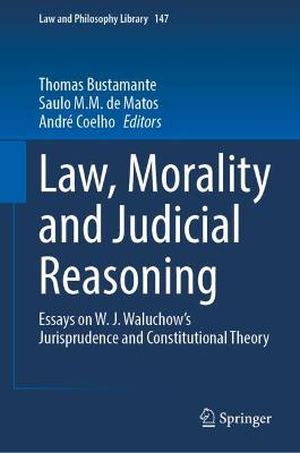
This book provides a critical outlook on, and an inquiry into the practical implications of, the works of Professor W.J. Waluchow, one of the most important jurisprudence scholars of the early twenty-first century, while also reflecting on the interconnections between his legal theory and his theory of constitutional interpretation. It also features an interview with Waluchow, in which he responds to some of the chapters and shares a first-person perspective on his main philosophical ideas, how they emerged, and how they can be further developed and applied.
The book makes a valuable contribution to contemporary legal philosophy by asking and providing different answers (from prominent legal philosophers and newer scholars in the field) to questions such as 'How does Waluchow's jurisprudence relate to his theories of legal reasoning and constitutional interpretation?', 'On what terms should we understand inclusive legal positivism?', 'Can inclusive legal positivism be reconciled with an interpretivist theory of adjudication?', 'How does it compare with Raz's model of legal authority?', 'Can Waluchow's notion of "community constitutional morality" be applied to contexts such as international law, pluralist legal communities, and indigenous laws?', and 'Is Waluchow's methodology equipped to provide interpretive directives in unstable and extremely unequal legal systems?'.
The chapters, all written by experts on jurisprudence (including some of the scholars who helped develop the tradition known as inclusive legal positivism), offer a unique analysis of Waluchow's most complex and intriguing theses, providing not only a valuable exegetical analysis of his work but also a range of answers to the challenge of interpreting legal and constitutional values, as well as practical resolutions to persisting controversies in the philosophy of law.